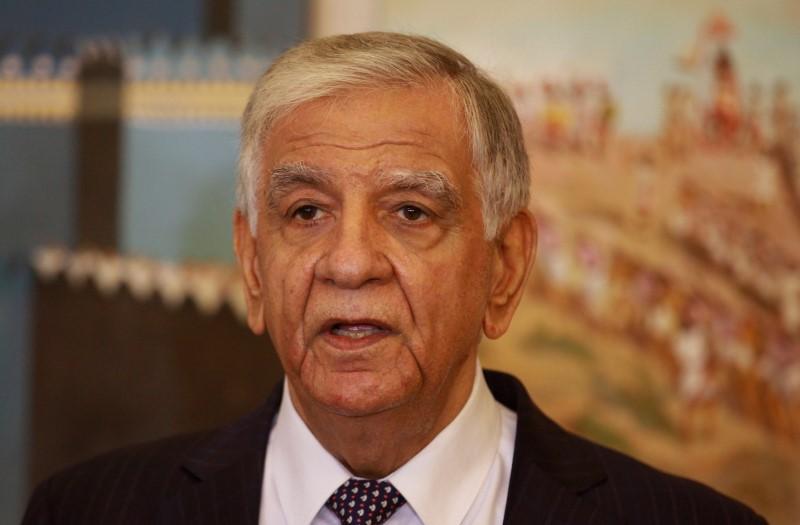London- Iraq will support the decision to extend the deal of the Organization of the Petroleum Exporting Countries (OPEC) and non-OPEC countries to cut oil output, if such decision is taken, Iraqi Oil Minister Jabbar Luaibi said Friday.
Speaking at a joint conference with Russian Energy Minister Alexander Novak, the minister told reporters that Iraq was in full compliance with and fully committed to the agreement. According to him, the decision to extend the deal should be taken in accordance to the market, with Baghdad ready to support the extension if it is decided upon.
OPEC’s cuts have helped to push oil back above $50 a barrel this year, giving a fiscal boost to producers.
“It is well-known that Iraq, from the very beginning, fully supported OPEC Declaration that was initiated on November 2016. Iraq is in full compliance and Iraq has exceeded 100 percent of its commitment on reduction of production and export,” Luaibi said.
The Iraqi Oil Minister indicated that Iraq prioritizes the stabilization of the oil market, adding that Iraq would support all measures that are intended to achieve this goal.
“If the market decides that for the stability of the market and the prices themselves there should be other measures to be taken [by] OPEC and non-OPEC, then Iraq will be the first to implement this. If there is a resolution stating to continue the present status then Iraq will be the first to implement this and to agree, so Iraq [agrees] with all decisions that save the unity of OPEC and top priority is to stabilize the oil market and oil prices,” Luaibi said.
OPEC and 10 non-cartel oil producers reached a deal in the Austrian capital of Vienna in 2016, agreeing to cut oil output by a total of 1.8 million barrels per day from October’s level to support oil prices. Non-OPEC states, including Russia, promised to jointly reduce oil output by 558,000 barrels per day, with Russia pledging to cut production by 300,000 barrels daily.
It’s too early to say whether OPEC and its allies will need to extend the production cuts beyond the first quarter of 2018, Al Luaibi said. That decision will depend on the stability of prices at the time of the group’s next meeting in November, he said. If there is a resolution to prolong the curbs, Iraq would comply, he said.
In May, the deal was extended by nine months and is now valid until the end of March 2018.
